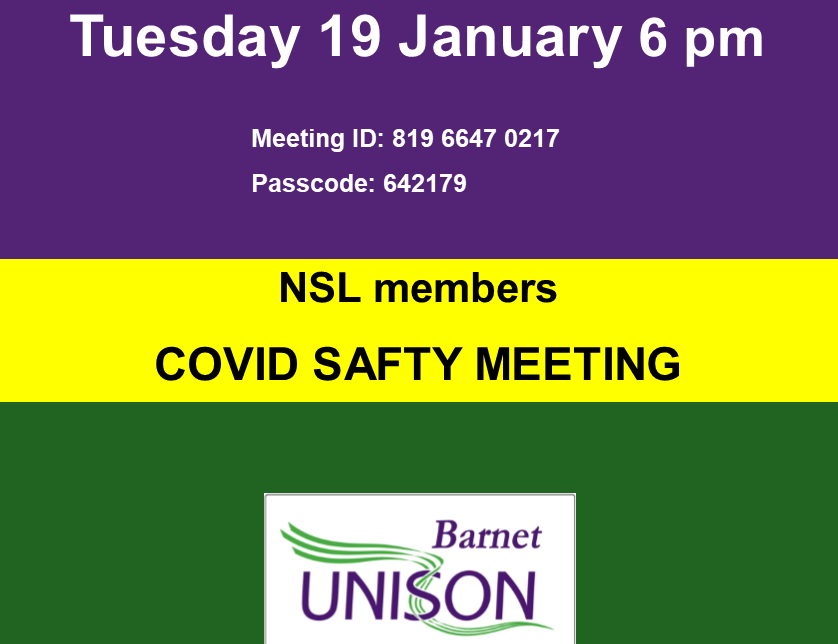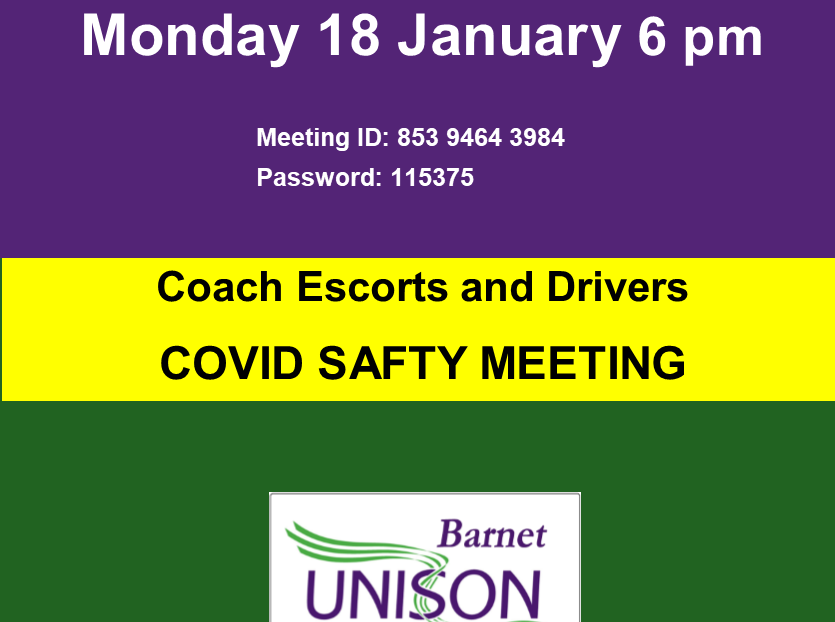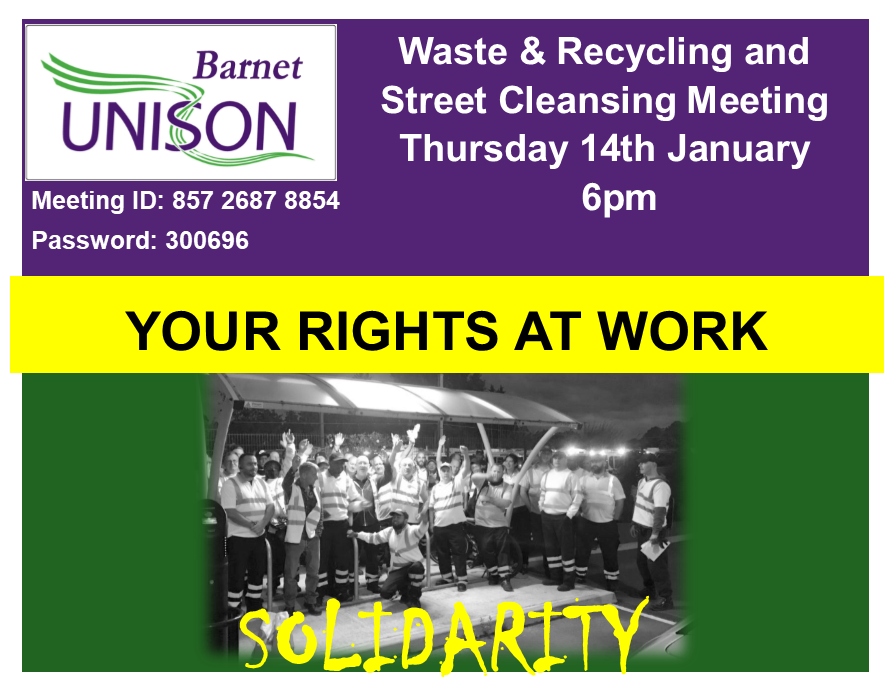
Dear Member
UNISON National has responded to widespread calls for advice for all of our members working I schools, nurseries and early years settings.
The draft email below is for members to send to their Head Teacher.
Please copy in Barnet UNISON when you send in the email contactus@barnetunison.org.uk
Model letter for UNISON members in schools, nurseries and early years in England
Dear [insert name of head/employer],
Re: Health & Safety
I am writing to you following the increase in transmission and infection rates currently recorded across England.
You are, I am sure, aware that you have legal duties to protect the health, safety and welfare of your staff and pupils. Those duties arise under the following legislation: –
- Sections 2 and 3 of the Health & Safety Act 1974
- Regulations 3 and 8 of the Management of Health & Safety at Work Regulations 1999
- Regulation 4 of the Personal Protective Equipment at Work Regulations 1992
- Regulation 4 of the Workplace (Health, Safety & Welfare) Regulations 1992
- Regulation 7 of the Control of Substances Hazardous to Health Regulations 2002
The most recent advice from SAGE is that schools should not open in January[1] other than for children of key workers and vulnerable children. This is because the scientific advice is that it is not safe for schools to open. There are new variants of Covid-19 that are highly infectious and infection rates have increased significantly since schools closed.
I appreciate that measures have been in place since September to allow the school to open but according to SAGE those measures may no longer be sufficient. They state in their most recent report: –
The introduction of Tier 4 measures in England combined with the school holidays will be informative of the strength of measures required to control the new variant but analysis of this will not be possible until mid-January.
Based on the above I do not believe that it is safe for me to return to [insert name of school].
If I do attend [name of school] I believe that this will present a serious and imminent danger to my health and safety.
I am therefore writing to inform you that I am exercising my contractual right not to attend an unsafe place of work. I believe that not attending work in the current circumstances is an appropriate step for me to take for the following reasons:
- The dangers that are preventing me from attending work are the risk of contracting coronavirus and or spreading coronavirus to others.
- The person(s) I am seeking to protect are myself, my family, our pupils, their families, my colleagues, their families and members of the public.
- I believe that this danger is serious because coronavirus infection is potentially fatal and has already resulted in more than 73,512 deaths in the UK with a significant up surge in recent weeks.
- I believe that, if I were to attend work, the danger would be imminent because before Christmas the highest infection rates were in children of school age, and the new variant may be more transmissible amongst students than previously.
- I will be happy to return to the workplace once SAGE is satisfied that the R rate has decreased, scientific advice has been produced on safety measures required to make schools more “Covid secure”, risk assessments have been updated and any necessary further safety measures implemented.
In the meantime, I am of course willing to carry out any of my duties or alternative agreed duties at my grade that can be undertaken from my home, and to be in school supporting provision and the learning of key worker and vulnerable children where necessary.
Yours sincerely,
[1] https://assets.publishing.service.gov.uk/government/uploads/system/uploads/attachment_data/file/948606/s0991-sage-meeting-74-covid-19.pdf
Important:
Please note this advice applies to all primary schools, special schools, SEND and early years settings in England.
You can read the advice in full on the UNISON website here
https://www.unison.org.uk/january-schools-advice/?utm_medium=email&utm_campaign=2%20Jan%20branch%20email&utm_source=Education&utm_content=Advice%20for%20members









 Dear Barnet UNISON members
Dear Barnet UNISON members
 Dear member
Dear member